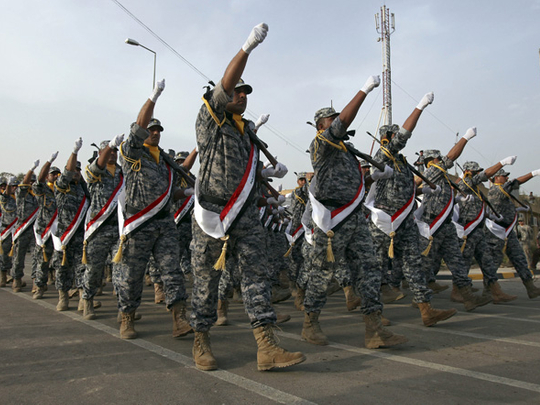
In the past few days, several Iraqi leaders have visited Riyadh to discuss the political crisis in their country with Saudi officials. The visitors included, for the first time, officials from the Iraqi Supreme Council, a party led by Ammar Al Hakim, often accused by many Saudis of being instrumental in spreading Iranian influence in Iraq.
Iraqis have often complained of the lack of an Arab presence, politically and diplomatically, in post-Saddam Hussain Iraq.
This absence, according to observers, has led to Iran and Turkey moving into the vacuum to exert influence and secure allegiance. This is in addition, of course, to the key role played by the occupying power, the United States, in determining the shape, pace and limits of Iraq's political, economic and even social developments.
Saudi Arabia had boycotted the Iraqi government for the past five years. It is believed that Riyadh blames the Nouri Al Maliki government for the sectarian strife that engulfed Iraq in the past five years, as well as the marginalisation of Sunnis.
Now, the Saudis seem to see an opportunity to re-engage Iraq. This is because of the results of Iraq's national election, in which Al Maliki came in second to the Iraqiya bloc led by Eyad Allawi, who is widely perceived as pro-Saudi and who advocates closer ties with the Arab world.
And this is not really a bad thing. The close involvement of Saudi Arabia, as well as other Arab countries for that matter, would bring Iraq back into the Arab fold, secure better security co-operation with neighbouring states to prevent terrorists from infiltrating, and encourage Arab business people to invest in the rebuilding of the war-ravaged country.
Renewed Saudi interest in Iraq should be applauded and supported by other Arab governments.
The future of the Iraqi people lies within the Arab fold. It is a key Arab state that should not be left to the influence and designs of outside powers.








